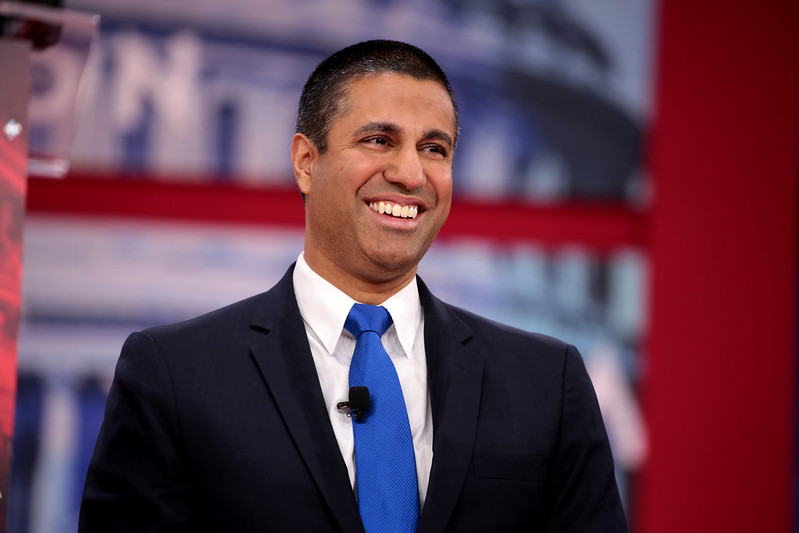
FCC Chairman Addresses CFR on 5G Security Issues, Solutions
By: Henry Rademacher
On Tuesday, November 4, Federal Communications Commission Chairman Ajit Pai spoke at a Council on Foreign Relations event on securing digital supply chains. Network security, specifically new challenges presented by the adoption of 5G, was the main subject of Pai’s remarks and subsequent discussion with Michelle Caruso-Cabrera.
“The equipment at the heart of 5G networks currently comes from just a few global suppliers. The largest right now is the Chinese company called Huawei,” said Pai. Although Huawei is nominally a private company, he said Chinese law requires that all companies under Chinese jurisdiction “comply with requests from Chinese intelligence services.” These requests cannot be disclosed to third parties.
Just last week, Pai published a piece in the Wall Street Journal outlining how the FCC will ensure the safety of U.S. networks. China has a history of leveraging its economic power to compel foreign corporations to accept demands made by the Chinese Communist Party. Pai mentioned recent examples of American companies, including the NBA, complying with demands made by China that were widely condemned as anti-free speech.
Huawei was recently charged by the Justice Department with fraud and theft of trade secrets from T-Mobile. Since 2001, numerous parties have expressed concerns with Huawei’s security infrastructure, repeatedly pointing out that backdoors appear to be common in its products. The backdoors theoretically allow the Chinese government to spy on anyone using a Huawei device, as the company is required by law to turn over any information requested of them by China.
However, many countries remain undeterred from doing business with Huawei. A spokesman for German Chancellor Angela Merkel recently stated that Germany has no plans to restrict Huawei’s access to their networks at this time. However, Germany’s Minister of Defense Annegret Kramp-Karrenbauer recently left open the possibility of banning Huawei in the near future.
President Trump has been aggressive in his criticism of Huawei, which earlier this year was “blacklisted” from doing business in the United States. However, the situation is far from resolved. Pai has sought to use the FCC as a firewall against Huawei and is preparing new measures to prevent them from being involved in U.S. 5G networks.
Pai made a number of suggestions for how the country can find a solution to securing its 5G networks. Pai has championed what he refers to as “rip and replace,” the practice of identifying every piece of telecommunications equipment in the United States that originates from suspicious companies, then replacing them with equipment determined to not pose a threat to national security.
The FCC is currently analyzing how best to proceed with rip and replace, as questions exist about how much existing infrastructure is a threat and how expensive it will be to replace. Later this month, the FCC is scheduled to vote on a measure to prohibit the use of Universal Service Fund money to purchase equipment or services that pose a threat to national security.
In May, President Trump issued an executive order preventing companies from purchasing telecommunications equipment from companies that pose a threat to national security. However, the issue is not resolved yet, and there is a substantial amount of Chinese equipment already present in U.S. networks.
Pai also highlighted the need for the United States to continue engaging with its international partners on 5G security. Although many countries have similar concerns as the United States, there are others who continue to do business with Huawei without regarding them as a threat. Pai emphasized “the need to leverage our nation’s leadership in software to mitigate security risks.” He believes that as U.S. companies improve their technology, there will be less need for equipment from foreign entities.The national security threats posed by companies like Huawei will remain as long as their equipment has a presence in the country.
Chairman Pai has made clear that addressing these threats is a priority for the FCC in order to strengthen national security.
Photo Credit: Gage Skidmore (flickr)